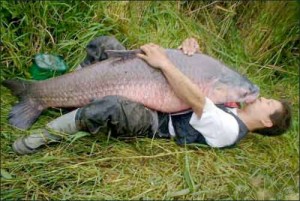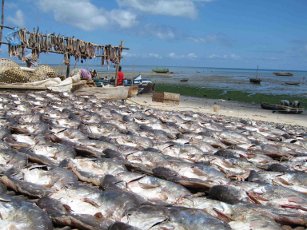 At the end of October, the Sea Around Us Project’s economist and director of the Fisheries Economics Research Unit Rashid Sumaila teamed up with Oceana spokesperson Ted Danson to meet with WTO Director-General Pascal Lamy to discuss the most recent estimates of global fisheries subsidies and the current state of WTO negotiations on this issue. The Economist reported on the fisheries subsidies discussion, particularly fuel subsidies here.
At the end of October, the Sea Around Us Project’s economist and director of the Fisheries Economics Research Unit Rashid Sumaila teamed up with Oceana spokesperson Ted Danson to meet with WTO Director-General Pascal Lamy to discuss the most recent estimates of global fisheries subsidies and the current state of WTO negotiations on this issue. The Economist reported on the fisheries subsidies discussion, particularly fuel subsidies here.
Global fisheries subsidies are estimated to be $25-$30 billion a year and encourage overfishing as well as undermine free market philosophy. The current Doha Round of the WTO is an apt forum for discussing and disciplining harmful subsidies, estimated at $16 billion per year.
From the WTO meetings in Geneva, Switzerland, Sumaila traveled to London to the British House of Commons for another meeting between legislators and scientists. The Marine Advisory Group of GLOBE International, a group that supports political leadership on issues of environmental sustainability, gathered to discuss overfishing.
Sumaila found the legislators involved, a multipartisan group primarily from the UK, to be enthusiastic, particularly the MP from the same region as author/journalist Charles Clover. According to Sumaila, the legislators were very keen on receiving scientific information and data and urged the scientific advisors involved to share their findings candidly.
The Marine Advisory Group will continue to work with Globe International to produce a policy document, which should be completed early 2010, to be taken back to member countries, and presented at a number of UN meetings next year.
 Sumaila, far left, at a meeting of the Marine Advisory Group of GLOBE International in the UK House of Commons.
Sumaila, far left, at a meeting of the Marine Advisory Group of GLOBE International in the UK House of Commons.





